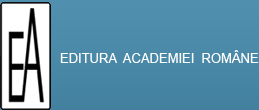Ethics and Malpractice
Journal of Numerical Analysis and Approximation Theory (JNAAT for short).
This journal agrees with and permanently verifies that its policy complies to the Committee on Publication Ethics (COPE).
Authors should refrain from misrepresenting research results which could damage the trust in the journal, the professionalism of scientific authorship, and ultimately the entire scientific endeavour. Maintaining integrity of the research and its presentation is helped by following the rules of good scientific practice, which apply to: the authors submitting to JNAAT, to the reviewers writing reports for JNAAT, and to the members of the Editorial Board.
Plagiarism policy:
- Plagiarism and self-plagiarism are not allowed.
- The authors should ensure that they have written entirely original works, and if they have used the work and/or words of others that this has been appropriately cited or quoted. Proper acknowledgement of the work of others must always be given.
- An author should not, in general, publish manuscripts describing essentially the same research in more than one journal or primary publication. Submitting the same manuscript to more than one journal concurrently constitutes unethical publishing behaviour and is unacceptable.
- Submitted articles are scanned with similarity detection software (Crossref Similarity Check) before being sent for review. The editor in charge will decide whether to immediately reject the manuscript, contact the authors for clarification or proceed with the peer-review process, depending on the level of originality and similarities with other documents. When serious plagiarized work is identified by the software, the manuscript is automatically rejected.
Publication and authorship:
- The manuscript should not be submitted to more than one journal for simultaneous consideration.
- The submitted work should be original and should not have been published elsewhere in any form or language (partially or in full), unless the new work concerns an expansion of previous work. Please provide transparency on the re-use of material to avoid the concerns about text-recycling (‘self-plagiarism’).
- Results should be presented clearly, honestly, and without fabrication, falsification or inappropriate data manipulation (including image based manipulation). Authors should adhere to discipline-specific rules for acquiring, selecting and processing data.
- No data, text, or theories by others are presented as if they were the author’s own (‘plagiarism’). Proper acknowledgements to other works must be given (this includes material that is closely copied (near verbatim), summarized and/or paraphrased), quotation marks (to indicate words taken from another source) are used for verbatim copying of material, and permissions secured for material that is copyrighted.
- Research articles and non-research articles (e.g. Opinion, Review, and Commentary articles) must cite appropriate and relevant literature in support of the claims made. Excessive and inappropriate self-citation or coordinated efforts among several authors to collectively self-cite is strongly discouraged.
- Upon request authors should be prepared to send relevant documentation or data in order to verify the validity of the results presented. This could be in the form of raw data, samples, records, etc. Sensitive information in the form of confidential or proprietary data is excluded.
- Authors have an obligation to correct mistakes once they discover a significant error or inaccuracy in their published article. The author(s) is/are requested to contact the journal and explain in what sense the error is impacting the article. A decision on how to correct the literature will depend on the nature of the error and will be taken by the Editorial Board. This may be a correction or retraction.
- All authors have significantly contributed to the submitted research.
- All authors should disclose any conflict of interest that might influence the results or their interpretation in the manuscript. Disclosure of interests provides a complete and transparent process and helps readers form their own judgments of potential bias.
- All sources of financial support should be disclosed.
Peer review / responsibility for the reviewers:
- The judgments in the referee report should be objective.
- Reviewers must have no conflict of interest with respect to the research, the authors and/or the research funders.
- The reviewed articles should be treated confidentially.
Editorial responsibilities:
- Editors-in-chief decide which editor is best suited to handle a review.
- Editors-in-chief can reject papers that are clearly inappropriate without assigning them to a review editor.
- Editors can reject any manuscript that does not conform to the journal’s standards.
- Editors in charge of submissions are responsible for the final editorial decision (acceptance or rejection).
- Editors are required to declare any competing interests and may be excluded from the peer review process if a competing interest exists.
- Editors should exclude themselves from handling manuscripts in cases where there is a competing interest.
- If they are an author or have any other competing interest regarding a specific manuscript, another Editor will be assigned to assume responsibility for overseeing peer review.
- Editors preserve anonymity for the reviewers.
- Editors are constantly monitoring/safeguarding the publishing ethics of the journal.
- Editors maintain the integrity of the academic record.
- Editors decide about publishing corrections, clarifications, retractions and apologies when needed.









